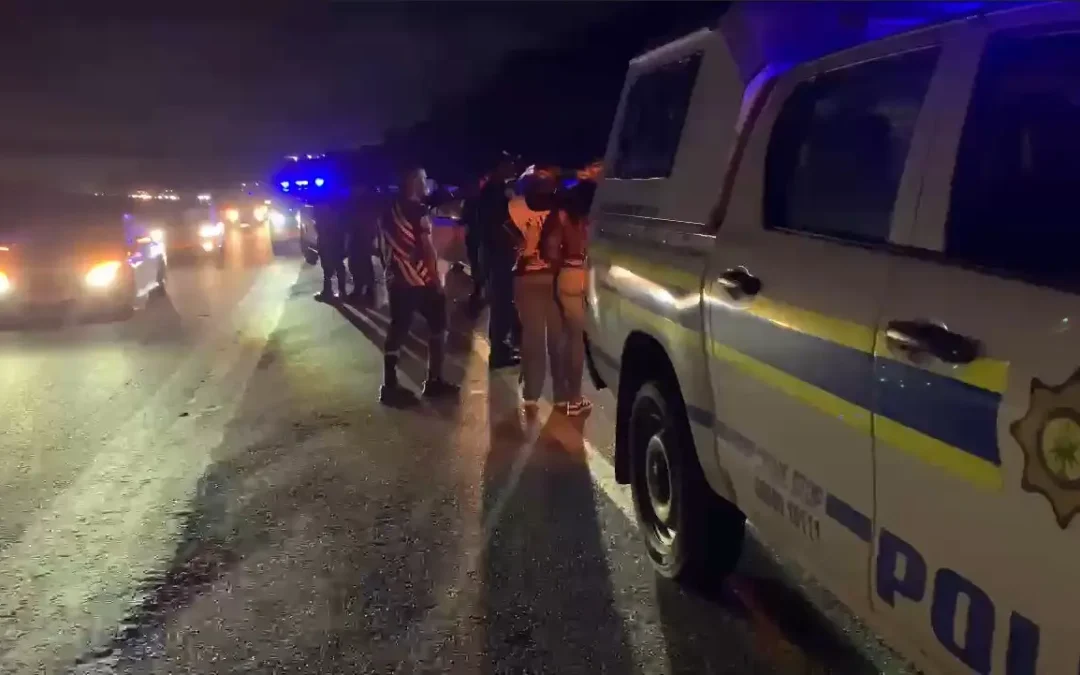Mangosuthu Buthelezi's Online Letter
Dear friends and fellow South Africans,
Imagine a world in which the Human Immunodeficiency Virus no longer exists. We achieved it with Smallpox, which was declared vanquished in 1980. But that was the first of only two devastating viral diseases ever to have been wiped off the face of the earth. The other was Rinderpest.
Rinderpest, or Cattle Plague, first appeared in South Africa in 1896.
Within a few years, it had killed some two and a half million head of cattle. It wiped out 90% of the cattle throughout Sub-Saharan Africa, and many of the domestic oxen used for ploughing. It also decimated the giraffe, buffalo, eland, kudu and wildebeest populations. After a fight spanning several centuries, Rinderpest was finally declared eradicated in May last year.
But the plague changed South African history, for it unleashed poverty among black communities whose lives were centred around livestock farming. As rural communities became impoverished, people were forced to migrate to the cities to seek a livelihood, and the mines saw an increased labour force. This left deserted rural land at risk. The Natal colony, for instance, saw the opportunity to delimit vacated land.
The transport system was also severely affected due to its reliance on ox-wagons, driving up prices of goods. Meat and milk practically disappeared from the market and communities turned either to crop farming or migrant labour. Rinderpest had an impact on South Africa's land policies, labour policies, social structure, economy and agricultural focus.
I was recently invited to consider whether cattle farming has ever returned to optimal levels in our rural communities, or whether the devastating blow of Rinderpest changed the notion of subsistence farming irrevocably away from cattle towards crops alone.
This is an important question to grapple with, for the King of the Zulu Nation has tasked traditional leaders with optimizing the use of the land under the Ingonyama Trust. When the King called Amakhosi to Enyokeni Palace last month to discuss rural development, I lamented the fact that few are following the example set by the King, who is an excellent farmer, or the example I myself have set as a cattle farmer and a tiller of fields.
I have warned in Parliament that we are walking a dangerous road by neglecting subsistence farming in the predominantly rural areas of South Africa, like the Eastern Cape and KwaZulu Natal. It used to be that in the summer months there were patches of mielies and pumpkins everywhere. Farmers, both black and white, used to plough with oxen.
But now, even when tractors are expensive, oxen are no longer used and very few small scale farmers even have them. Using oxen to plough is not old fashioned. One sees this method still used in the Far East with great success. And as the Prince of Wales said when he visited South Africa last year, perhaps the most intelligent thing we can do going forward is to revisit the methods of the past.
Surprisingly, according to a Cape Times article on Monday, less than 8% of South Africa's land is well-suited to crop farming, while over 80% consists of natural veld which requires special conservation measures and "is good only for extensive, slow-turnover livestock and game ranching systems".
According to the 2011 Agricultural Baseline of the Bureau for Food and Agricultural Policy, there is room for a 45% expansion in beef production in South Africa and a 120% expansion in the production of sheep meat. The Bureau believes South Africa could create 1 million more jobs in primary agriculture and its associated industries.
That raises a few questions about Government's job creation strategy, but also a few about our current level of food production. With all this potential, why is South Africa a meat importer? Why is mutton imported all the way from Australia or New Zealand not vastly more expensive than mutton produced on our own soil? And why have red meat prices in South Africa increased almost a hundred fold over the past 5 years?
There is certainly reason to reintroduce cattle as well as subsistence farming into rural areas. We must do all we can to ensure food security for tomorrow. This is one of my greatest preoccupations. Not only to the extent that we will have enough food to feed our nation in the years to come, but that we are able to feed our nation the kind of diet that will promote its well-being.
This is important both in terms of fighting diseases like HIV/Aids and TB, and in promoting brain power to enable South Africa to compete in the growing global knowledge economy. It is simple science that a child's mental development relies on adequate nutrition.
There are, of course, challenges to overcome to the ideal of re-introducing widespread, small scale cattle farming to rural areas.
Not least is the serious problem of stock-theft. But then there is also the difficulty of inadequate infrastructure, which drives up costs. This is an obstacle for Government to overcome. Potential buyers in outlying areas are unlikely to travel to sales points when there is a poor road network, and when transport costs are so high.
This week, the issue of high transport costs will hit a nerve with most South Africans. The metrorail fare increase and petrol price hike hit our pockets directly. But the full effect of the petrol price increase will only come later as businesses pass the cost on to consumers, and food and commodity prices increase again. Everything points to the need for a massive shift from buying food to producing food. That shift demands our support.
Yours in the service of the nation,
Prince Mangosuthu Buthelezi MP





![IFP Launches Its Plan to Rebuild KZN [English]](https://www.ifp.org.za/wp-content/uploads/2024/04/IFP-Launch-KZN-Plan-to-Rebuild-KZN-Photo-1-1080x675.jpeg)